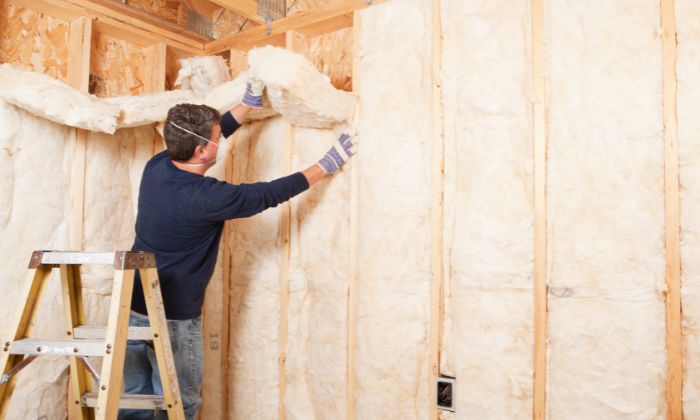Top Floor, Old Bank Building, Uxbridge Square, Menai Bridge, Anglesey - LL59 5WY
The Whole House Approach is a comprehensive strategy mandated by ECO4, designed to enhance the energy efficiency, sustainability, and overall environmental performance of residential buildings. Instead of offering individual measures, this approach takes into account the entire home, considering all possible improvements for a holistic transformation.

Key principles of the Whole House Approach include:
Energy Efficiency: Prioritizing energy reduction by optimizing insulation, sealing air leaks, and enhancing ventilation. This includes improving the thermal performance of the building's envelope, upgrading windows and doors, and utilizing energy-fficient appliances and lighting.
Indoor Air Quality: Ensuring a healthy indoor environment for occupants is crucial. This involves implementing proper ventilation and filtration systems to remove pollutants and controlling moisture levels to prevent mold and mildew growth.
Renewable Energy Integration: Encouraging the adoption of renewable energy technologies to reduce reliance on fossil fuels and minimize the building's carbon footprint, such as air source heat pumps and solar photovoltaics.
When one of our qualified surveyors assesses your home, we consider all measures that qualify under the ECO4 scheme. Our goal is to ensure that every eligible improvement is implemented, resulting in reduced heating bills and increased energy efficiency for your home. This comprehensive approach benefits both homeowners and the environment, contributing to a greener and more cost-effective future.
ECO4 offers a range of heating measures designed to improve energy efficiency and reduce carbon emissions in homes. These measures cover various heating options, making homes warmer, more environmentally friendly, and cost-effective. Here's an overview of these grant-funded heating solutions:
Mains Gas Central Heating
Mains gas central heating is a popular choice for homes connected to the gas supply.
It typically involves a combination boiler connected to the mains gas service. This boiler heats water, which is then circulated through a wet radiator system in your home, providing both heating and hot water.
Larger properties may have a regular boiler with a hot water cylinder to meet their heating and hot water needs.
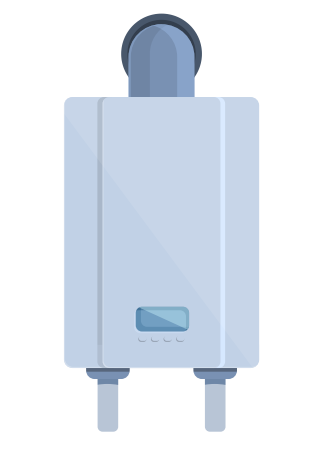

Air Source Heat Pump
An air source heat pump acts like a boiler but doesn't require a flue.
It heats water and circulates it through your radiators to keep your home warm. It also heats your hot water, just like a traditional gas or oil boiler. What makes it environmentally friendly is its reduced CO2 emissions.
These pumps transfer heat from the outside to the inside, even in cold weather, without burning fossil fuels. They use a refrigerant gas and electricity to achieve this. The pump uses electricity to make the gas hotter by compressing it.
The heated gas passes through a heat exchanger in your home, warming it. As it releases heat, the gas cools and is allowed to expand, making it cooler. Now, it can absorb more heat from outside, continuing the process. This system efficiently provides your heating and hot water year-round.
Boiler Upgrade
Under the ECO4 scheme, we offer boiler upgrades to homes with inefficient boilers.
Homes in mains gas areas are eligible for condensing combination boilers, while those outsidemains gas areas with LPG, bulk LPG, oil, or back boilers can receive air source heat pump systems. The eligible boilers for upgrade include non-condensing gas, LPG, bulk LPG, and oil boilers, as well as back boilers.
If your property has one of these, youmight qualify for an upgrade.
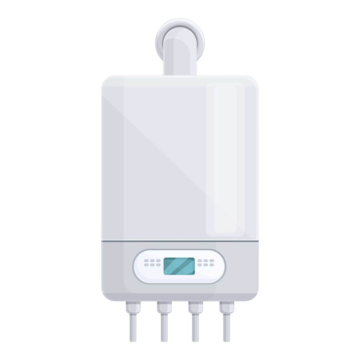
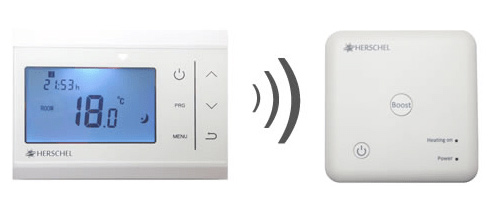
Heating Controls
As part of ECO4, we offer various heating control options
Such as smart programmers, thermostatic radiator valves (TRVs), weather compensation, and time and temperature zone control, to enhance the efficiency of your heating system.
High Heat Retention Storage Heaters
High heat retention storage heaters use electricity to warm ceramic bricks during off-peak hours when electricity rates are lower.
These bricks then release the stored heat gradually during the day, providing a consistent heat source. They can be controlled with a thermostat to set desired temperatures and schedules.
These heaters are more efficient than traditional electric heaters because they use off-peak electricity tariffs and store heat at night for daytime use. They also feature a “boost” mode for quick room heating when needed.
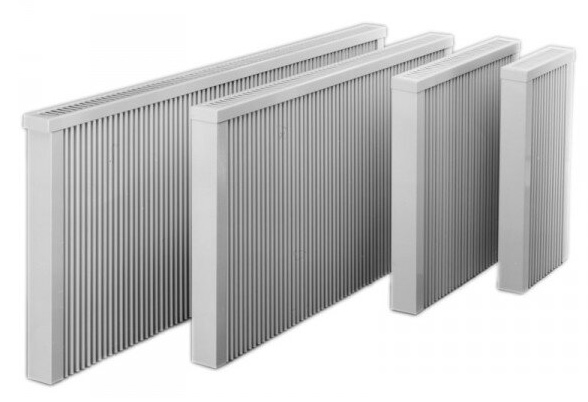
Insulation offers several benefits for homes:
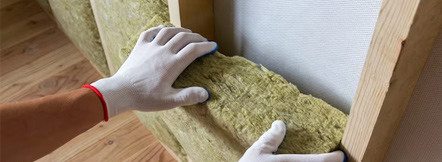
Internal Wall Insulation
This system insulates all external walls inside your home, except for those in wet rooms, like kitchens and bathrooms.
Due to impracticality, wet rooms are not insulated. Instead, we install DMEV fans in wet rooms.
Room in Roof Insulation
This entails insulating the top storey of a building with over 50% of its dwarf walls below1.8 meters.
The insulation covers slopes, dwarf walls, gable ends, party walls, flat ceilings, and residual spaces in qualifying room-in-roof areas. Wet room external elements are not insulated. Instead, DMEV fans are installed in wet rooms.
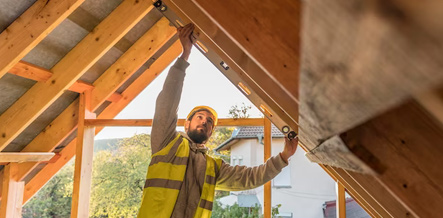
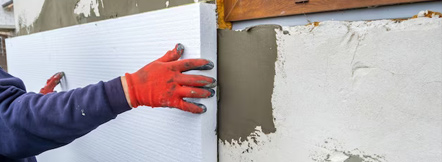
Cavity Wall Insulation
Therma beads, similar to small polystyrene beads
Are pumped into the cavity between he inner and outer bricks of a cavity-built house to install cavity wall insulation.
Loft Insulation
This insulation is placed in the attic or loft to prevent heat loss through the roof.
Rockwool is typically used, and it’s installed on top of the attic floor between the joists. Proper attic ventilation is essential to prevent moisture and mold. We aim to install up to 400mm of insulation, depending on the existing conditions.
Lagging or insulation may also be required for tanks, pipes, and wires.

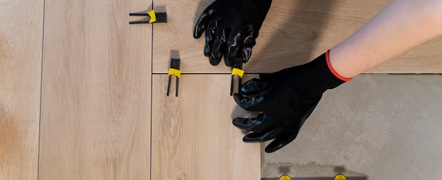
Suspended Floor Insulation
Installed when there is sufficient space under the suspended floor for access.
It’s placed between the floor joists and secured with netting attached to the joists.
Solar Photovoltaics (PV)
Solar PV systems use solar panels and an inverter to convert sunlight into electricity.
The process involves solar panels absorbing sunlight and converting it into direct current (DC) electricity. An inverter then transforms the DC electricity into alternating current (AC), making it usable for household appliances.
The system is grid-connected, allowing excess electricity to be fed back into the grid. Solar PV systems continuously convert sunlight into usable electricity, ensuring a sustainable power supply.
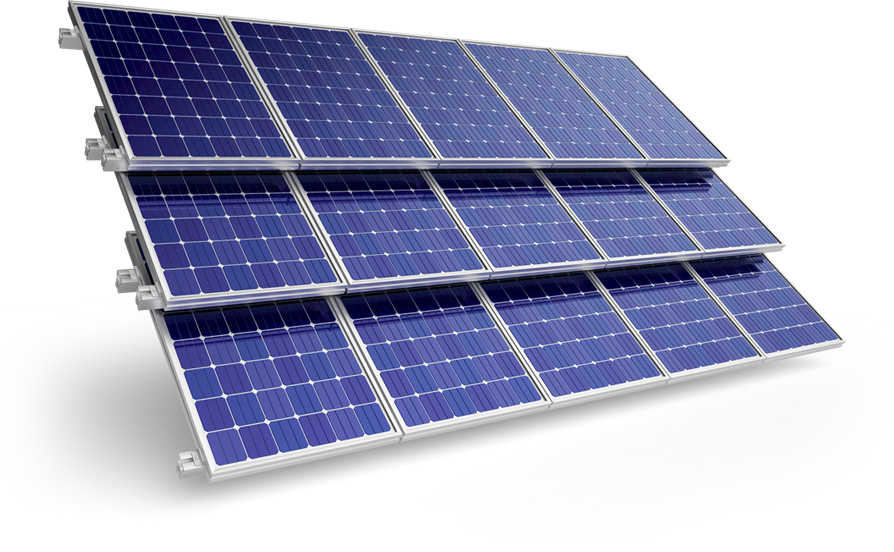

Battery Storage
Battery storage is a technology that stores surplus electricity generated by a solar photovoltaic (PV) system.
When a solar PV system produces more electricity than a home consumes, the excess power is typically exported to the grid. However, with a battery storage system, this excess electricity is stored in a rechargeable battery.
This stored energy becomes invaluable during periods when solar panels are not generating sufficient power, such as at night or on cloudy days. Battery storage systems are not part of ECO4, but there are situations where they can be installed.
Additionally, our private renewable department offers battery systems for those seeking an independent renewable energy solution.
Ventilation is essential when installing any fabric measure (such as internal wall insulation, loft insulation, room in roof insulation, flat roof insulation, underfloor insulation, and cavity wall insulation) in a dwelling. The installation of such measures can alter the home's permeability and lead to several concerning issues, including:
Thermal Bridging
Fabric measures can create thermal bridging, leading to cold spots in the building.
Mould and Condensation
Reduced ventilation may increase the risk of mould and condensation in the dwelling.
Indoor Air Quality
Fabric measures may reduce the amount of fresh air entering the home, impacting indoor air quality.
Carbon Emissions
Proper ventilation is essential for overall energy efficiency and reducing carbon emissions.
Property Value
Adequate insulation can enhance the value of a home.


Healthier Living
Good insulation can minimize the entry of dust and allergens, promoting a healthier living environment.
To address these issues, the following ventilation aspects are considered when installing any fabric measure:
Background Ventilation
Background ventilation introduces fresh outside air into habitable rooms through trickle vents or openable vents. It helps remove stale indoor air, improving overall air quality.
Pulse Testing
Pulse testing is used to assess the air permeability of a dwelling. It helps identify how ‘leaky’ the building is and determines if trickle vents and undercuts are necessary for fabric measures.
Combustion Ventilation
Combustion air vents provide a continuous supply of combustion air for rooms with fuel-burning appliances. This includes rooms with open fireplaces, closed fireplaces over 5kw, and gas fires over 7kw.
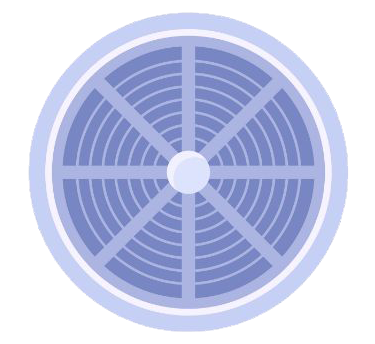
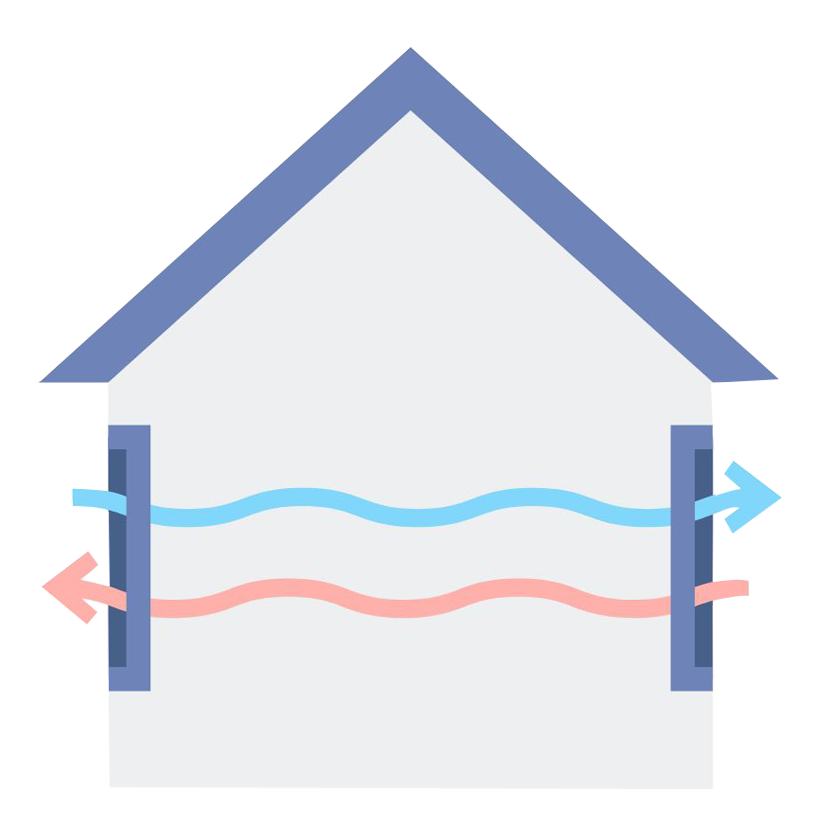
Purge Ventilation
Purge ventilation rapidly dilutes pollutants and moisture. Rooms without openable windows may require extractor fans for effective ventilation.
In wet rooms, including kitchens, utility rooms, bathrooms, and WC without openable windows, extractor fans must be installed when fabric measures are introduced. For internal wall insulation, wet rooms are exempt from insulation installation due to practicality concerns. In such cases, it’s essential to ensure these rooms can be heated to 18°C when occupied and to install decentralised mechanical extract ventilators (DMEVs) to maintain proper ventilation.
When testing a dwelling’s air permeability, if it exceeds 5m3/m2h, there may be no need for trickle vents and undercuts when proposing fabric measures under ECO.
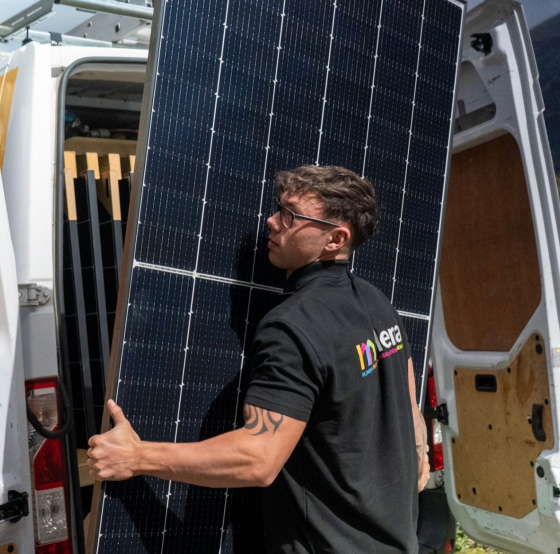
01248 421044
We'd love to hear from you! Feel free to reach out anytime – your thoughts and questions are always welcome.
We Can Do
